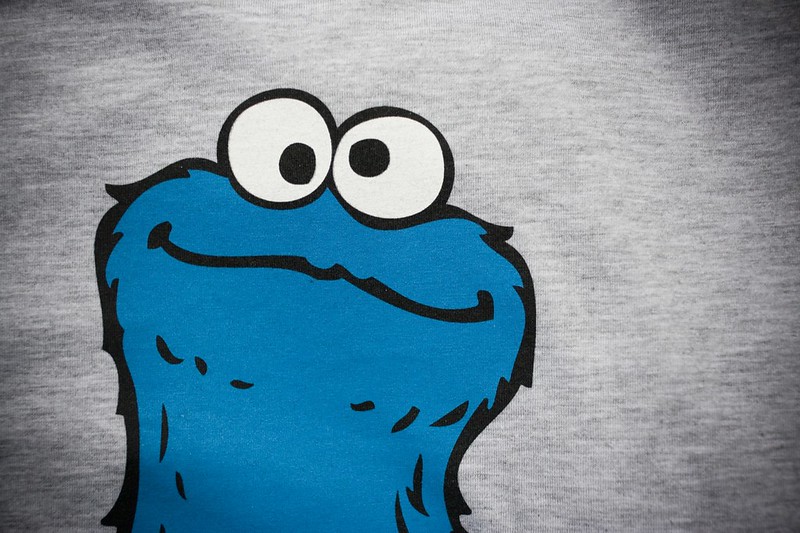Where are the cookies?
You may have wondered that there is no cookie banner on this website. Well, that is simply because there are no cookies here. That way, I can keep this site free from annoyances such as cookie banners, aesthetically appealing, and, most importantly, user-friendly.
If you are looking for some cookies, go on a ride first, then enjoy a delicious home made cookie with a post-ride coffee or cold drink, always obeying Rule #22. Or simply check out Phil's cookie shop or find out more information on the cookie monster macarons (above) from raspberri cupcakes.
And while you enjoy your delicious cookie, you may continue reading to get a better understanding on why cookies matter.
What are cookies?
A cookie is technology which remembers something about you when browsing a website. Cookies are small text files with information which are stored on your device you use for accessing the website. Cookies are usually employed to allocate a certain action or preference on a website to a user.
Cookies are not necessarily good or bad. They can be required for a technical function or simply provide more convenience for you when visiting the same website again (for example, be remembering your language preference), but they can also be misused. The issue with cookies is not so much the cookies
themselves, but the way people use cookies to gather information, including personal data of the user of a website, to use such data for other purposes and/or to sell such data.
You can find further information on cookies on allaboutcookies.
What types of cookies exist?
There are two basic types of cookies: (i) transient cookies (including session cookies) and (ii) persistent cookies which are sometimes reffered to as permanent cookies.
Transient cookies & Session cookies
These are cookies which allow the user to be recognized within a website. For example, the shopping cart feature in an online shop would not work properly without a session cookie; there would not be any items in your cart when you checkout, because the checkout page would not recognize your past activities on the article pages so your shopping cart will always be empty.
Session cookies, which are a specific type of transient cookies, store a session ID which can be used to assign various requests from your browser to the shared session. This allows your computer to be recognized when you return to the same website. Session cookies and other transient cookies are
automatically deleted when you close your browser.
Persistent cookies / Permanent cookies
Persistent cookies are initially stored when you close your browser and then automatically deleted after a specified period, which may vary depending on the cookie. You can set a time for such cookies to be deleted or directly delete such cookies in your browser at any time.
Third-party cookies
Cookies (both transient and persistent) can be set by the owner/operator of the website. However, currently cookies can also be set by a third-party, such as advertiser. As with the cookies set by the owner/operator of the website, third-party cookies also require your consent. However, many browser no longer allow third-party cookies to be set.
What if I need to have cookies for my website?
There may be times when you want to or have to use cookies with your website. Perhaps, you need to have transient cookies to improve UX or need to have cookies that come with the web shop technology you are using for your website. Or you are trying to better understand your target audience and want to create user profiles and track them down with the help of some cookies. There are many use cases.
Whatever your use case will be, beware of the cookie monster! It may come and eat your cookies, either when people do not agree to have cookies dropped on their computer due to browser settings or by rejecting the use of cookies on the cookie banner you provide. Since the use of certain cookies requires the consent of the user, you must have a cookie banner and cookie policy for such cookies. For other cookies, it might suffice to inform the user in your cookie policy. From a user perspective, cookie banner have become a huge annoyance, and most people do not read cookie policies. It may seem appealing to outsource this to a service provider, or to simply use a template from the internet. In some cases, such quick solutions might do the job (for a while). However, there is one thing many websites fail to get right, i.e., getting the legally required consent of the user, because the cookie banner does not comply with the law, for example, pre-selected consent, or no option to reject the use of certain or all cookies.
Confused?

If you have further questions on cookies, cookie banner, cookie policies, and cookie compliance, you can contact me or send me an e-mail (hello@hak.lawyer).
Copyright notice:
"Cookie Monster Macarons" by raspberri cupcakes is licensed under CC BY-NC-ND 2.0.
"Cookie Monster" by edwardkimuk is licensed under CC BY-NC-ND 2.0.